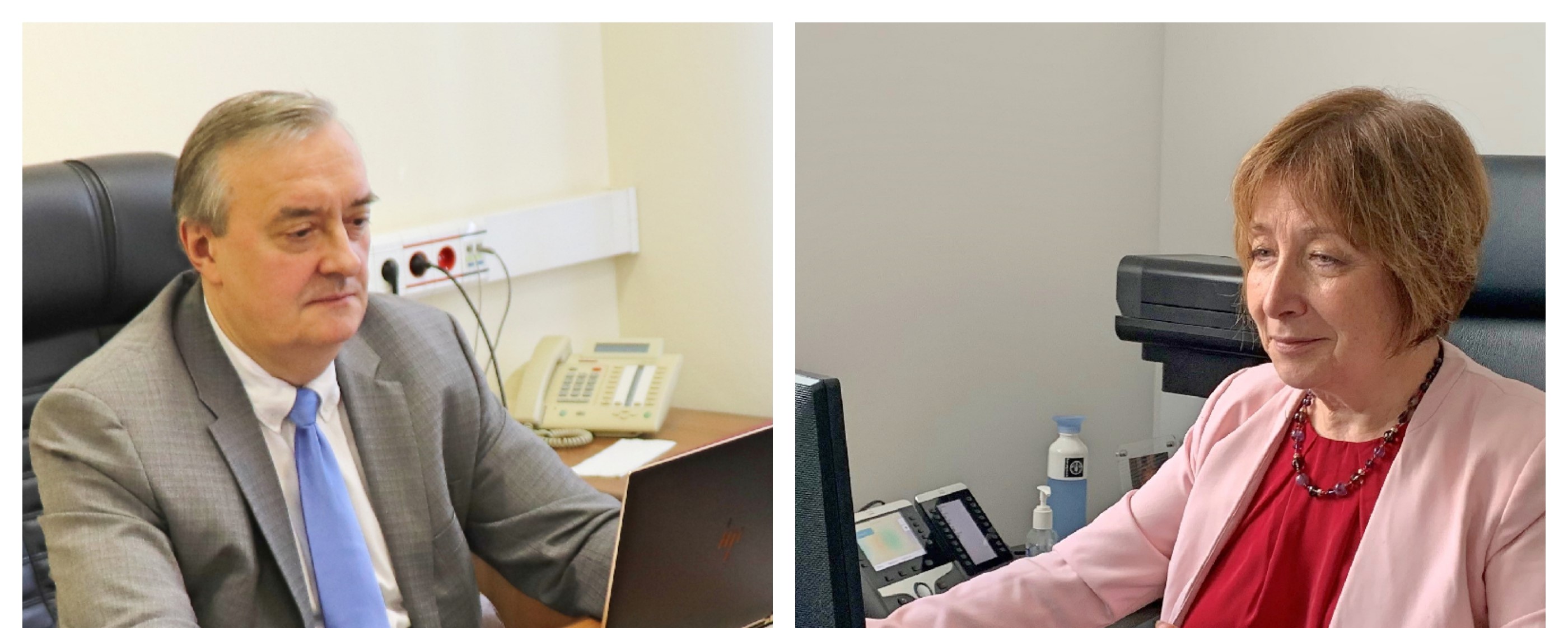OECD-FAO Forecast to Serve Russian Farmers

Photo collage: © FAO/Vladimir Mikheev
The FAO Liaison Office with the Russian Federation and the Institute for Agrarian Studies of the Higher School of Economics co-hosted the Russian premiere for the OECD-FAO Agricultural Outlook for 2020-2029.
The focus of the web Conference was on the potential of the Russian agricultural sector in the context of global trends. The top-tier event was organized with the support of FAO, OECD, Ministry of Agriculture and Ministry of Economic Development of the Russian Federation.
The OECD-FAO Agricultural Outlook presentation in Russia was targeting, apart from the academia and policymakers, the Russian private sector too, considering its increasing use of statistical and forecast data in business development, sales and export strategies reflecting global trends.
“As a rule, at such conferences we focus on prices, policies, market conditions, but rather rarely we consider the forecasts for the whole decade,” said Professor Eugenia Serova, Director of the Institute for Agrarian Studies at the Higher School of Economics. It is important that “now we are moving from constant discussion of tactical issues of market development to consideration of strategies. We hope to make this conference an annual event,” Professor Serova emphasized.
In recent years, Russian agriculture has been actively integrating into the world economy. There is growing interest inside the country towards supply and demand and trade-related trends, and price movements in global agricultural markets, Ms Oksana Lut, Deputy Minister for Agriculture of the Russian Federation, said in her opening remarks.
In the context of the coronavirus pandemic, “the Russian agro-industrial complex coped with the situation quite well. In the time span of one to two months, our country has formed a personnel reserve so as not to halt production; due to this response as well as to timely sanitary measures, regular production was not suspended even for a day,” Ms Lut noted.
Recalling that in 2019 the domestic agricultural sector, including the manufacturing and food industries, grew by 4 percent, Ms Lut shared the forecast that this year a record grain harvest is expected. Since agri-food production exceeds domestic consumption in many commodity categories, Russia will be able and ready to supply its food products to world markets, Deputy Minister for Agriculture noted.
Welcoming the panelists and the audience on the part of FAO, Mr Oleg Kobiakov, Director of the FAO Liaison Office in Moscow, said that the Outlook premiere in Russia was important due to the fact that the country was increasingly becoming a key global food commodities supplier. “Nowadays, agrarians do not grow and produce for an unknown market. Agriculture has become an exact science, production data and forecasts have become indispensable tools like navigators in modern vehicles, – he added. – You may, of course, hit the road without one, but even if you are familiar with the route, information on estimated time of arrival, speed limits, fuel consumption and traffic situation would come handy”.
Highlighting the analysis of developments in global food markets and supply chain disruptions due to COVID-19, Dr Maximo Torero Cullen, FAO Chief Economist noted.
“Except meat, all price indices are up from last year.” In a detailed presentation “Major developments in global food markets in the aftermath of the COVID-19 pandemic” Dr Torero concluded that “overall, COVID-19 pandemic has had relatively little impact on investment flows on wheat, maize, rice and soybeans futures.”
“Similar to the situation during the second half of the 2019/20 season, food markets are expected to confront important uncertainties beyond their own fundamentals also in 2020/21,” noted Dr Torero.
“Macro-economic concerns, in particular weak economic growth prospects, developments in energy and currency markets, along with continuing trade tensions, not to mention uncertainties associated with African swine fever and the desert locust, are major challenges to overcome,” FAO Chief Economist warned. “However, current prospects continue to point to generally well-supplied markets, at least for basic foodstuffs.”
Stipulating the supply chain disruptions during COVID-19, the FAO expert provided a four-point breakdown: 1) Shortages in agricultural labour due to restrictions on travel and movement of people (especially migrant workers); 2) Transport restrictions, impeding farmers’ access to input and output markets; 3) Lower capacity utilization of processing facilities, shutdowns and partial closures; 4) Disruptions of international food supply and distribution chains.
Detailing the medium-term risks due to COVID-19, Dr Torero listed three major ones: Reduction in commodity prices weakens exporting countries’ trade position, thus impacting employment, and driving fiscal revenue down (commodity dependence). Prolonged crises makes it difficult to continue consumer and producer support measures; policy makers may resort to more frequent market interventions and trade policy responses. Possible problems for countries with high import-dependency and low possibility to substitute with regional production in the medium run (generally low levels of intra-regional trade in developing regions).
The key findings and conclusions, pointed out by Dr Torero, are related to the lessons learned from COVID-19.
- First and foremost: Urgent need to accelerate food and agricultural systems transformation: “business-as-usual” scenario is not an option.
- Second: Digital technologies and innovations hold enormous potential to improve the functioning of food and agricultural markets and supply chains.
- Third: International trade helps to manage risks associated with shocks and contribute to enhancing resilience of markets.
- Fourth: COVID-19 has highlighted the critical importance of international collaboration and coordination (rather than pursuing in-ward looking policies and self-sufficiency objectives).
Finally, Dr Torero emphasized the role of market transparency.
The Conference was also addressed by the top experts from OECD, Russian Ministry of Economic Development, AgroExport, and industry associations (Russian Grain Union, Fat-and-Oil Union of Russia, Union of Sugar Producers of Russia, National Pig Producers Union of Russia, National Union of Milk Producers, and Russian Poultry Union).
Over 100 experts attended the online conference. The event was broadcast live on the YouTube channel in Russian.
